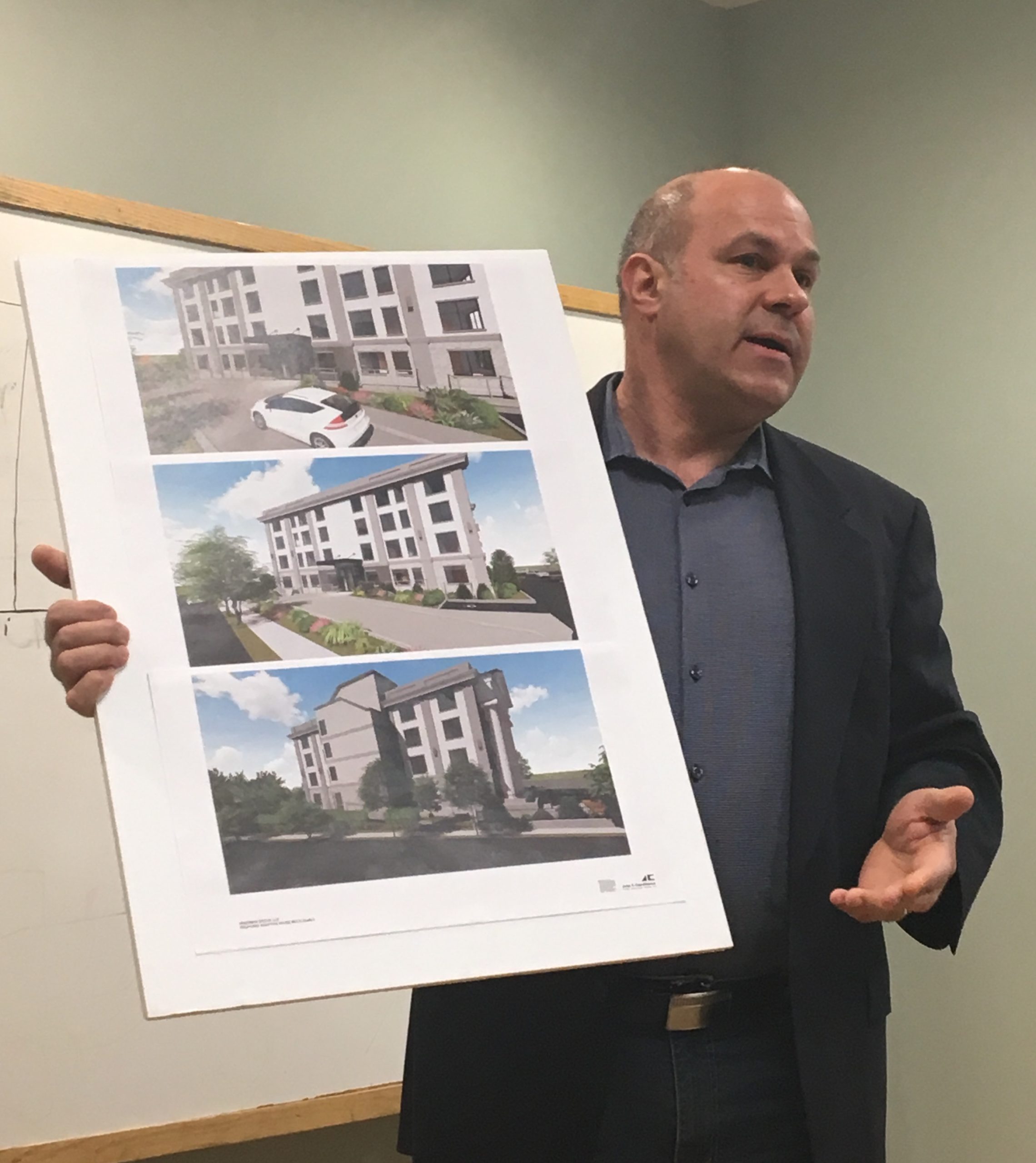Plans for the redevelopment of Centennial Hall in the Village of Floral Park have been sent back for more information by the Architectural & Preliminary Site Plan Review Board.
At the review board meeting Wednesday night, Guy Friedman, CEO of Hewlett-based The Friedman Group, presented updating renderings and architectural plans for the historic 93-year-old village building.
ARB Chairman Frank Gunther and other members of the board said that they were pleased with how the building looked and the plans were coming along, but ultimately took no action on approving the plans, asking instead that Friedman provide more specific details on some of the projects’ dimensions.
The project is “generally headed in the right direction,” Gunther said. “We want to see all the details.”

The village purchased Centennial Hall, built in 1925, in 2005 for $1.5 million with a $2 million bond to attempt to revitalize the space. After determining it was unfit for governmental use, the village began a bidding process to find developers.
The Friedman Group purchased Centennial Hall from the village in July 2018 for $1.2 million as part of a contract that would preserve the facade of the former Masonic temple and restrict it strictly to residential uses for 30 years.
The contract plans to build 18 one and two bedroom apartment units in the 8,500 square foot building and a triangular private-park for building residents at the corner of Carnation and Tulip avenues.
Though no prices have been established yet, according to Friedman each unit, which are all rentals, would cost approximately $2,400 to $2,800.
Also part of the contract, Centennial Hall will maintain its facade, the recognizable Greek Revival style four-column front to the building.
The current columns are in a state of substantial structural disrepair, according to Friedman, and will be replaced with almost identical new wooden columns.
Prior to the signing of the contract with The Friedman Group, other plans for the building include a mixed-use medical office and residential space and office space. At one time Centennial Hall was also used by the Floral Park Historical Society.
The grading rise of the curb, a gradual ramping of one surface elevation to another, was one of the concerns Gunther spoke of prominently. Gunther said that “eye-balling” the plans, he needed to see more information about how a handicap accessible grade change was achieved from the parking lot level to the front entrance of the building.
Along that same route, Gunther suggested adding a possible railing or structure on top of the curb separating the newly proposed circle driveway at the front entrance and sidewalk between it and the building, to draw more attention that there is in fact a curb dividing the two.
Another point of discussion was how the building, across the street from the U.S. Post Office to the northeast, would handle the disposal of trash.
Garbage will be stored in a refuse room in the building until the sanitation department comes to pick it up, and then it will be transported to the back of the building in five trash receptacles and camouflaged mostly be shrubbery, according to Friedman.
Gunther said he is concerned with the aesthetic and handling of several trash cans consistently on Tulip Avenue, and Friedman assured the board he would revisit and clarify the sanitation plans.
The 24-space parking lot next to the building currently has one entrance on Carnation Avenue and be inaccessible from Tulip, but may change based on traffic concerns, Gunther, the board and Friedman considered.
Gunther said overall the plans are coming along nicely and that the dimension specifications are the only thing currently holding back progress. Final sale of the property, according to the contract, is contingent upon approvals from the village’s zoning board and ARB.



